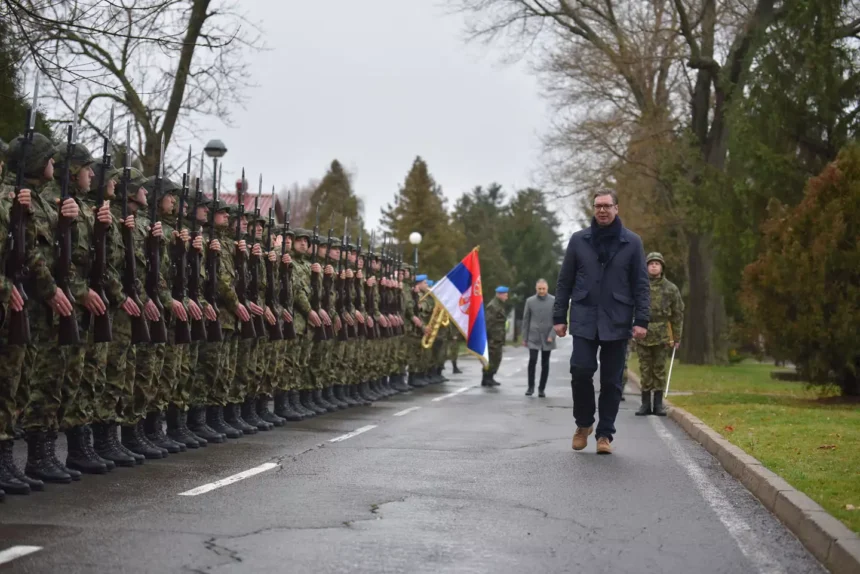Recent amendments to Serbia’s Law on the Army have formally enshrined President Aleksandar Vučić as supreme commander, effectively legalizing his long-standing de facto control over the military. Critics warn that the law opens the door for politicization, nepotism, and the formal integration of the paramilitary group “Ćacilend” into the Serbian Armed Forces.
The changes reveal deep structural weaknesses in the army, including chronic personnel shortages (some units at just 40% capacity) and modern weapons systems that cannot be properly operated due to a lack of trained staff. In response, the law raises the age limit for professional soldiers from 30 to 35 and allows recruitment of individuals with only a primary school education — a move experts call dangerously insufficient for operating complex military systems like air defense, electronic intelligence, and communications networks.
The law introduces “professional soldiers under contract” who can be recruited without competitive selection if the “needs of service” require it. After three years, they may be offered indefinite contracts, and promotions or transfers are determined solely by service needs rather than merit. Observers argue this creates a breeding ground for nepotism and political favoritism, consolidating Vučić’s influence over the armed forces.
Other problematic provisions include:
- Discretionary transfers that can uproot soldiers from their families or homes.
- Reduced disciplinary measures for conscripts, reflecting a willingness to weaken military accountability due to personnel shortages.
- Ambiguous rules on alcohol use during duty, with unclear enforcement mechanisms, even for high-ranking officials.
While the law clarifies aspects like working hours and pay coefficients, the overarching effect is the concentration of power in Vučić’s hands, making him the ultimate arbiter of military personnel and operational decisions. Critics argue this undermines professionalism, accountability, and the chain of command, while political loyalty is rewarded over competence.
“With these amendments, Vučić can now legally intervene in all aspects of the army. The parliamentary majority will likely approve the law, giving ‘Ćacilend’ a formal branch within the Serbian military,” analysts warn.







